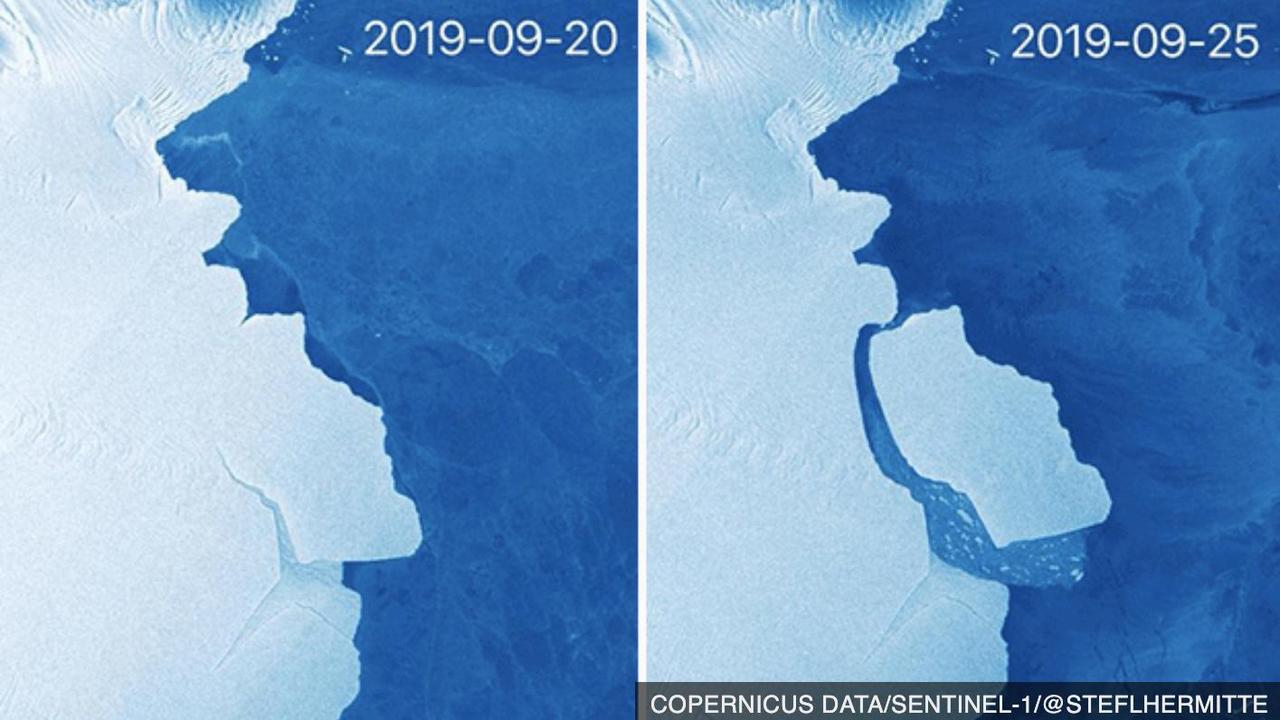Antarctica records hottest day - 20 degrees for first time
Antarctica has recorded its hottest-ever temperature - 20.75 degrees - as global warming continues to undermine the continent’s vast ice reserves.
Scientists in Antarctica have recorded a new record temperature of 20.75 degrees Celsius, breaking the barrier of 20 degrees for the first time on the continent.
“We’d never seen a temperature this high in Antarctica,” Brazilian scientist Carlos Schaefer told AFP.
He cautioned that the reading, taken at a monitoring station on an island off the continent’s northern tip on February 9, “has no meaning in terms of a climate-change trend,” because it is a one-off temperature and not part of a long-term data set.
But news that the icy continent is now recording temperatures in the relatively balmy 20s is likely to further fuel fears about the warming of the planet.
The reading was taken at Seymour Island, part of a chain off the peninsula that curves out from the northern tip of Antarctica.
The island is home to Argentina’s Marambio research base.
Schaefer, a soil scientist, said the reading was taken as part of a 20-year-old research project on the impact of climate change on the region’s permafrost.
The previous high was in the 19s, he said.
“We can’t use this to anticipate climatic changes in the future. It’s a data point,” he said.
“It’s simply a signal that something different is happening in that area.” Still, he added, a temperature that high had never been registered in Antarctica.
Accelerating melt-off from glaciers and especially ice sheets in Antarctica is helping drive sea level rises, threatening coastal megacities and small island nations.
The news came a week after Argentina’s National Meteorological Service recorded the hottest day on record for Argentine Antarctica: 18.3 degrees Celsius at midday at the Esperanza base, located near the tip of the Antarctic peninsula.
That reading was taken on February 6 at an Argentine research base and still needs to be verified by the World Meteorological Organisation.
“Everything we have seen thus far indicates a likely legitimate record,” Randall Cerveny, who researches records for the organisation, said in a statement.
He added that he is waiting for full data to confirm.
The peninsula has warmed significantly over the past half century - almost 3C, according to the World Meteorological Organisation.
Cerveny said the unusually high temperature was likely due, in the short term, to a rapid warming of air coming down from a mountain slope.
The previous record of 17.5C was set in March 2015.
The past decade has been the hottest on record, the United Nations said last month, with 2019 the second-hottest year ever, after 2016.
And 2020 looks set to continue the trend: last month was the hottest January on record

Climate change is heating up Antarctica and the Arctic faster than other regions of the planet.
The Arctic is warming more than twice as fast as the rest of the globe, according to an annual report published in December by the National Oceanic and Atmospheric Administration.
In September 2019, the Amery Ice Shelf produced its biggest iceberg in more than 50 years.
The calved block covers 1636 sq km - about the size of Greater Sydney - and was called D28
The scale of the berg meant it has had to be monitored and tracked because it could in future pose a hazard to shipping.



